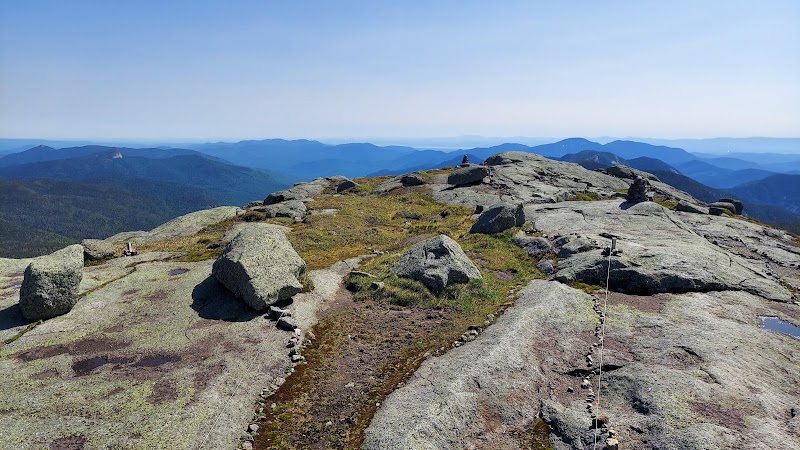
Rallying for the River: Connecticut River Cleanup in West Lebanon, NH
Join the Connecticut River Cleanup in West Lebanon, NH, where the river’s currents challenge volunteers to restore its natural vigor. This event combines accessible riverside trails with meaningful action, inviting adventurers of all levels to contribute to a thriving ecosystem.
Wear Protective Gloves
Gloves are vital for safety when picking up debris along the riverbanks, protecting your hands from sharp objects and contaminants.
Choose Waterproof Footwear
The terrain can be wet and muddy near the river’s edge, so sturdy waterproof boots or trail shoes will keep your feet dry and stable.
Hydrate Regularly
Carry and sip water frequently; river cleanups can last several hours and exertion levels vary with the terrain and weather.
Arrive Early
Mornings tend to be cooler and less crowded, giving you a calm window to engage with the river and the surrounding landscape before the day heats up.
Rallying for the River: Connecticut River Cleanup in West Lebanon, NH
Experience the Connecticut River as it asserts itself along the banks of West Lebanon, New Hampshire—a waterway that commands respect and invites stewardship. The Connecticut River Cleanup is more than an environmental effort; it's an invitation to engage directly with a river fiercely itself, pulsing with life and history. Volunteers gather to remove debris from the river and its shores, confronting the challenges posed by human impact while witnessing the raw energy of flowing water that refuses to be tamed.
The cleanup unfolds along accessible river trails, often following the gentle yet purposeful course of the river itself. Terrain here ranges from wide gravel banks where the water pushes swiftly against the shore, to shaded forest spots where the trees stretch tall and silent, their roots holding soil from slipping into the current. Expect about 2 to 4 miles of walking, mostly flat but with occasional uneven ground caused by exposed roots and scattered rocks. Elevation changes are minimal, keeping the focus on the river and its demands rather than steep climbs.
As you navigate the paths, the river dares you to notice its moods—the low, reflective pools contrasting with the sections where currents surge and swirl. Birds call overhead, and the occasional fish breaks the surface, reminding you that this ecosystem thrives under pressure and protection. Timing your arrival early in the day often means cooler temperatures and fewer crowds, allowing for a more immersive interaction with the environment.
Preparation is straightforward but essential. Sturdy footwear is a must; waterproof boots or trail shoes will handle the wet, sometimes muddy banks effectively. Bring durable gloves for handling trash safely, and pack sufficient water to stay hydrated during your hours outdoors. Weather can shift quickly along the river corridor, so layering is wise: a light rain jacket or windbreaker may come in handy.
The cleanup is a powerful blend of purpose and presence, where your efforts strengthen not only this stretch of the Connecticut River but your connection to the natural world around West Lebanon. Every item removed is a victory for the river’s health, every step a reminder that adventure includes responsibility. Whether you’re a weekend hiker or a seasoned outdoor enthusiast, this cleanup presents a chance to be fiercely engaged with the environment—a force alive, demanding respect and action.
Nearby Trips
All Adventures
Boat Charters
Water Activities
Adventures near West Lebanon, New Hampshire
Discover the unique and memorable adventures that make West Lebanon, New Hampshire special.
Frequently Asked Questions
Where is the best spot to focus cleanup efforts along the Connecticut River in West Lebanon?
Volunteers often concentrate efforts near areas where debris collects naturally, such as bends in the river or downstream of popular access points. In West Lebanon, the stretch near Montshire Road sees a buildup of litter due to car traffic and boating activity.
Are dogs allowed during the cleanup activities?
Dogs are generally allowed on-leash along designated trails, but owners should keep them under control to avoid disturbing wildlife and volunteer safety.
What wildlife might I see during a spring cleanup?
Spring visits may reveal osprey soaring overhead, beavers busy along the edges, and a variety of migratory songbirds returning to nest in riverside trees.
Is prior cleanup experience necessary to participate?
No experience is required—volunteer orientation covers safety protocols, proper trash handling, and navigation of the terrain.
How does the cleanup contribute to local environmental health?
Removing trash reduces harmful impacts on aquatic species, prevents pollution runoff, and helps restore habitats for fish, birds, and plants that depend on clean water.
Are there any historical landmarks associated with the river near West Lebanon?
Yes, the Connecticut River Valley was central to early American trade and industry; nearby structures like historic mills and old ferry crossings mark the river’s role in regional development.
Recommended Gear
Waterproof Hiking Boots
Protect your feet from wet, muddy riverbanks for stable footing throughout the cleanup.
Durable Work Gloves
Essential for safe handling of trash and protection from sharp or contaminated items.
Insulated Water Bottle
Keeps water cool and encourages regular hydration in warm weather.
Layered Clothing and Rain Jacket
Helps adapt to rapid temperature changes and occasional rain near the river.
Local Insights
Hidden Gems
- "A small riverside wetland off Montshire Road offers quiet birdwatching opportunities."
- "The old ferry dock remnants provide a rarely visited glimpse into historical river transport."
Wildlife
- "Great blue heron, river otters, spotted turtles, and migrating warblers frequent the area."
History
"The Connecticut River supported early Native American settlements and later became a crucial artery for trade and industry in New England, shaping the economy of West Lebanon and surrounding communities."
